
Gubeng: The Heartbeat of Surabaya
Gubeng, nestled in the vibrant city of Surabaya, Indonesia, is a neighborhood that effortlessly blends the old and the new. As a tourist, you will find Gubeng to be a hub of activity with its bustling streets, diverse culinary delights, and historic sites. This neighborhood is perfect for those who want a taste of authentic Indonesian culture while enjoying modern conveniences. Begin your exploration at Gubeng's iconic railway station, a historic landmark that serves as a gateway to the rest of the city. The station itself is a marvel of colonial architecture and offers a glimpse into the past. From here, you can easily access other parts of Surabaya, making Gubeng an ideal base for your travels. Gubeng is also a food lover's paradise. The area is dotted with a variety of eateries, from street food vendors to upscale restaurants. Don't miss the chance to try 'Rujak Cingur,' a traditional Javanese salad with a unique blend of flavors. For a more modern dining experience, head to one of the many cafes that serve both local and international cuisine. For those interested in shopping, Gubeng offers a range of options from local markets to modern shopping malls. The area's markets are perfect for picking up souvenirs, local crafts, and fresh produce. If you're looking for something more contemporary, the nearby malls offer a wide range of international brands and entertainment options. Gubeng is not just about food and shopping; it also has a rich cultural scene. Visit one of the local art galleries or catch a traditional dance performance to get a deeper understanding of Indonesian culture. The neighborhood's parks and green spaces provide a welcome respite from the city's hustle and bustle, offering a peaceful retreat where you can relax and unwind.
Local tips in Gubeng
- Visit Gubeng Railway Station early in the morning to avoid crowds and enjoy the architecture.
- Try 'Rujak Cingur' at a local street vendor for an authentic culinary experience.
- Head to the local markets for unique souvenirs and fresh produce.
- Take a stroll in one of the neighborhood's parks to relax and enjoy some greenery.
Gubeng: The Heartbeat of Surabaya
Gubeng, nestled in the vibrant city of Surabaya, Indonesia, is a neighborhood that effortlessly blends the old and the new. As a tourist, you will find Gubeng to be a hub of activity with its bustling streets, diverse culinary delights, and historic sites. This neighborhood is perfect for those who want a taste of authentic Indonesian culture while enjoying modern conveniences. Begin your exploration at Gubeng's iconic railway station, a historic landmark that serves as a gateway to the rest of the city. The station itself is a marvel of colonial architecture and offers a glimpse into the past. From here, you can easily access other parts of Surabaya, making Gubeng an ideal base for your travels. Gubeng is also a food lover's paradise. The area is dotted with a variety of eateries, from street food vendors to upscale restaurants. Don't miss the chance to try 'Rujak Cingur,' a traditional Javanese salad with a unique blend of flavors. For a more modern dining experience, head to one of the many cafes that serve both local and international cuisine. For those interested in shopping, Gubeng offers a range of options from local markets to modern shopping malls. The area's markets are perfect for picking up souvenirs, local crafts, and fresh produce. If you're looking for something more contemporary, the nearby malls offer a wide range of international brands and entertainment options. Gubeng is not just about food and shopping; it also has a rich cultural scene. Visit one of the local art galleries or catch a traditional dance performance to get a deeper understanding of Indonesian culture. The neighborhood's parks and green spaces provide a welcome respite from the city's hustle and bustle, offering a peaceful retreat where you can relax and unwind.
Iconic landmarks you can’t miss
Surabaya Submarine Monument
Explore the Surabaya Submarine Monument, a historic tribute to Indonesia's naval prowess with a retired submarine open for public exploration.
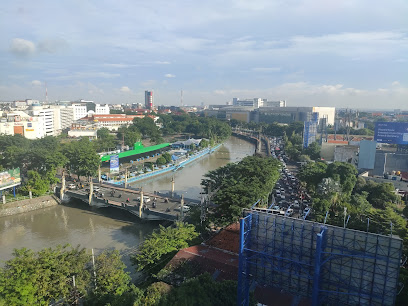
Alun - Alun Surabaya
Discover the beauty and culture of Surabaya at Alun - Alun, a serene park filled with lush greenery and local heritage.
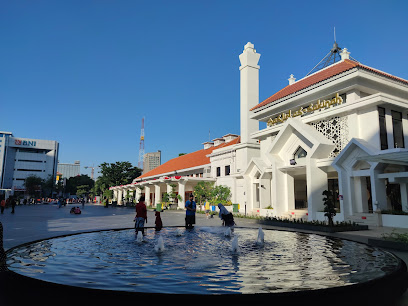
Monumen Bambu Runcing
Discover Surabaya's iconic Monumen Bambu Runcing, a monument that embodies the city's spirit of resilience and rich history.
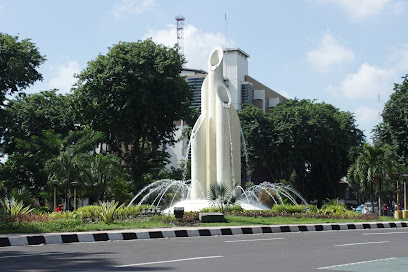
Museum Kanker Indonesia
Explore the Museum Kanker Indonesia in Surabaya for a unique educational experience on cancer awareness and prevention.
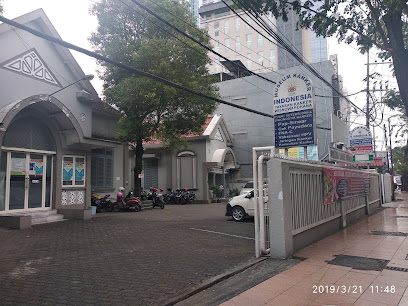
Statue of Gubernur Suryo
Explore the Statue of Gubernur Suryo in Surabaya, a monumental tribute to Indonesia's history and a vibrant centerpiece of local culture.
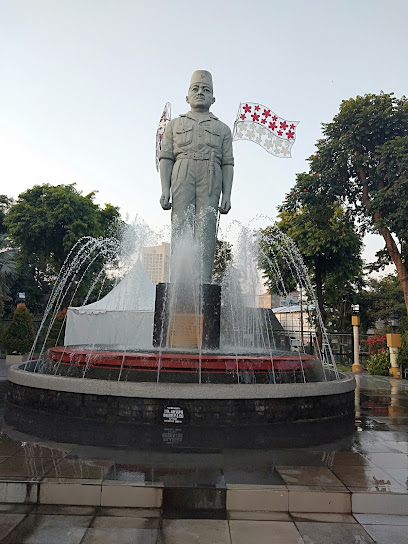
Oude Ned-indië Viaduct bij Kêrtadjaja Goebêng - Viaduct Kertajaya
Discover the charm of Surabaya at the Oude Ned-indië Viaduct, a historical landmark that reflects Indonesia's colonial past and vibrant culture.
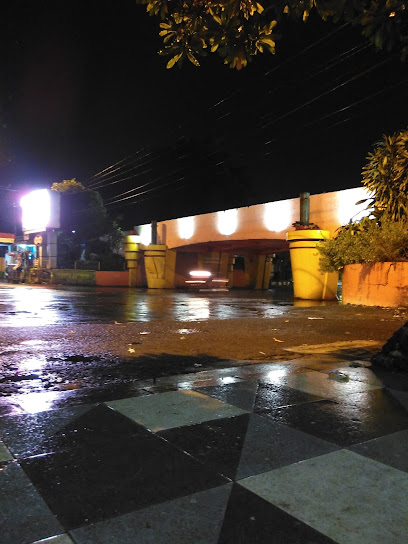
Museum Etnografi dan Pusat Kajian Kematian Universitas Airlangga
Explore the cultural depth of Indonesia at Museum Etnografi dan Pusat Kajian Kematian Universitas Airlangga, a unique destination for understanding life and death traditions.
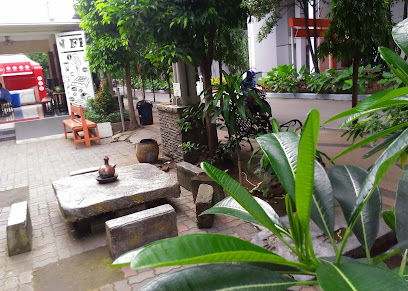
Rumah Air Surabaya
Explore the rich history of water management at Rumah Air Surabaya, a unique museum showcasing the evolution of water utilities in East Java.
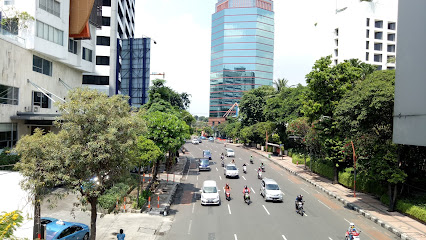
Monumen I ️FIBO
Discover the captivating history of Surabaya at Monumen I FIBO, a stunning landmark that reflects the rich cultural heritage of East Java.
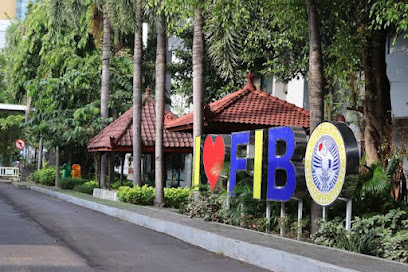
Gubeng
Explore the natural beauty of Gubeng, a scenic hiking area in Surabaya, East Java, perfect for nature lovers and outdoor enthusiasts.
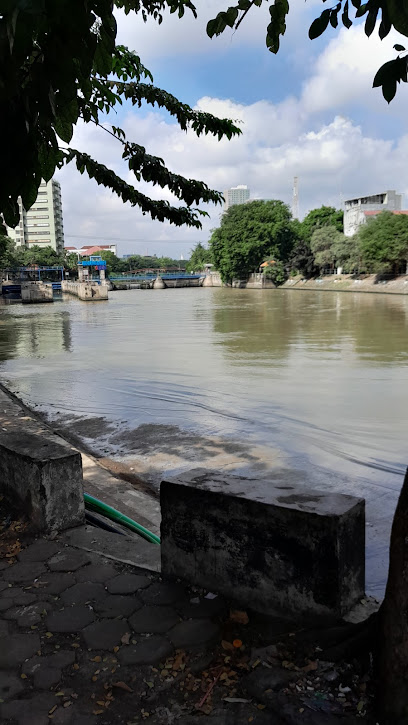
Essential places to dine
BONCAFE RAYA GUBENG
Experience exquisite steaks and cozy café vibes at Boncafe Raya Gubeng in Surabaya - a true delight for food lovers.
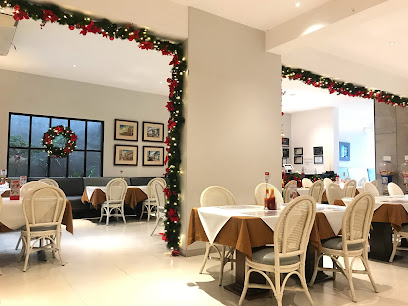
Domicile Kitchen Lounge
Experience the finest Western and American cuisine at Domicile Kitchen Lounge in Surabaya's vibrant Gubeng district.
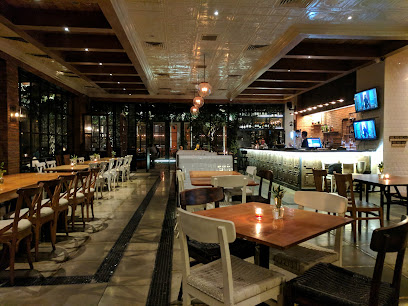
CARNIS
Experience the best of Surabaya's culinary scene at CARNIS - where premium steaks meet exceptional service in a stylish setting.
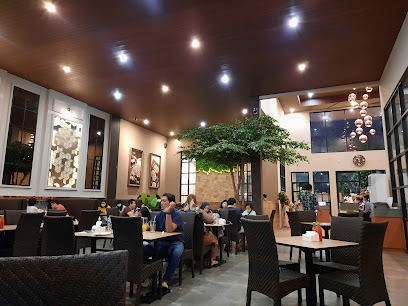
JOYBOX RESTO & LOUNGE
Discover Indonesian cuisine at JOYBOX RESTO & LOUNGE, where live music meets delicious flavors in a vibrant atmosphere.
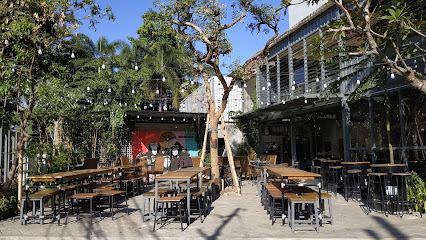
Old Wood Bistro
Discover the vibrant flavors and lively atmosphere at Old Wood Bistro in Surabaya's Gubeng district—a must-visit culinary destination.
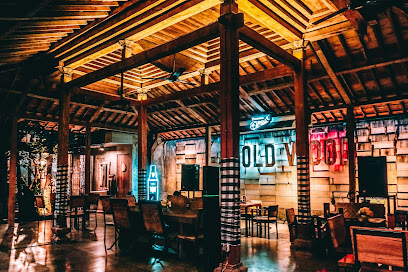
White House Surabaya | Resto Garden Lounge
Discover culinary delights in a serene garden setting at White House Surabaya – where taste meets tranquility.
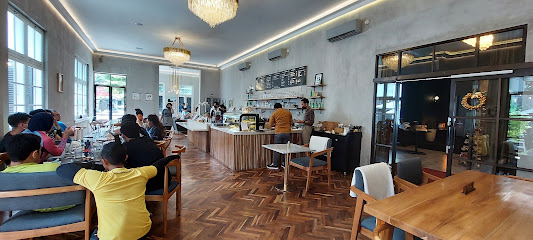
Nur Pacific Restaurant
Discover the diverse flavors of Indonesia and beyond at Nur Pacific Restaurant - a family-friendly buffet haven in Surabaya.
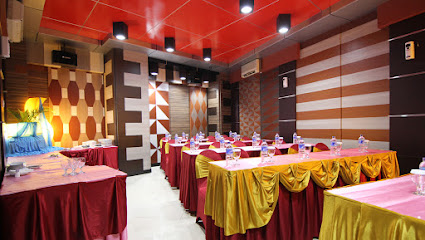
Locaāhands - Dining Club
Discover the flavors of East Java at Locaāhands – where culinary creativity meets cozy dining in Surabaya.
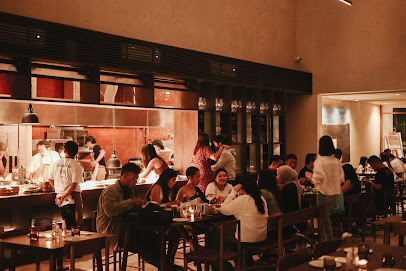
de Soematra
Discover the exquisite flavors of Italy and Spain at de Soematra - Surabaya's premier fine dining restaurant offering an unforgettable culinary journey.
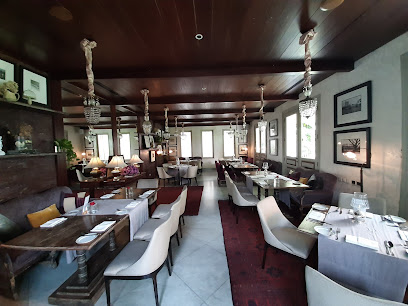
Sky 36 Restaurant
Experience exquisite Indonesian cuisine with stunning views at Sky 36 Restaurant in Surabaya.
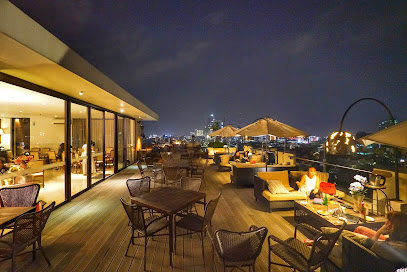
Markets, malls and hidden boutiques
Mirota Batik & Handicraft Surabaya
Explore the vibrant colors and rich culture of Indonesia at Mirota Batik & Handicraft Surabaya, where shopping meets tradition in a delightful atmosphere.
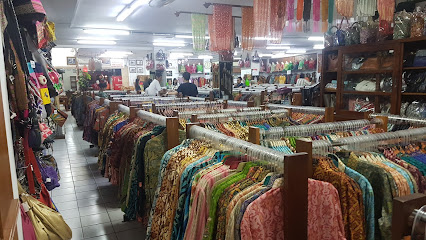
Ventela® Surabaya Official Store | Cabang Utama Surabaya | 100% Original
Explore stylish and comfortable footwear at Ventela® Surabaya Official Store, your go-to destination for original shoes in East Java.
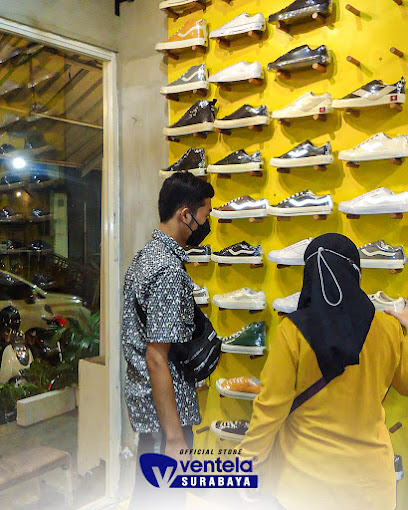
Cak Cuk Surabaya Dharmawangsa Store
Explore unique T-shirt designs at Cak Cuk Surabaya, capturing the spirit of East Java in stylish fashion statements.
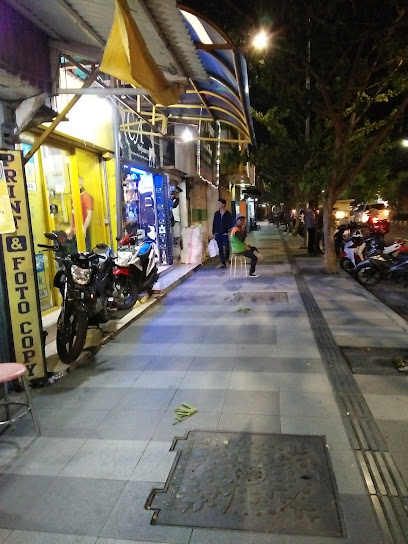
Toko Gandung
Explore Surabaya with ease at Toko Gandung, your friendly neighborhood convenience store for snacks, essentials, and local delights.
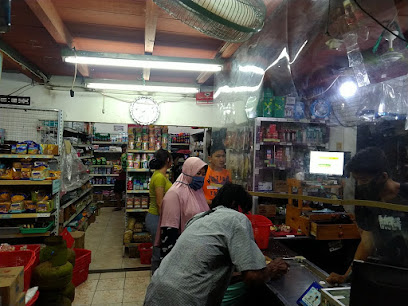
Shafira - Surabaya (Gubeng)
Discover exquisite fashion at Shafira Boutique in Surabaya, where elegance meets style in a vibrant shopping experience.
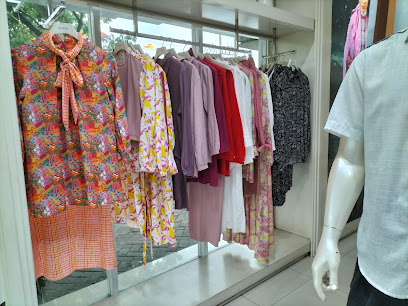
The Indonesian Craft
Explore The Indonesian Craft in Surabaya for unique handcrafted gifts, traditional arts, and vibrant plants that reflect Indonesia's rich culture.
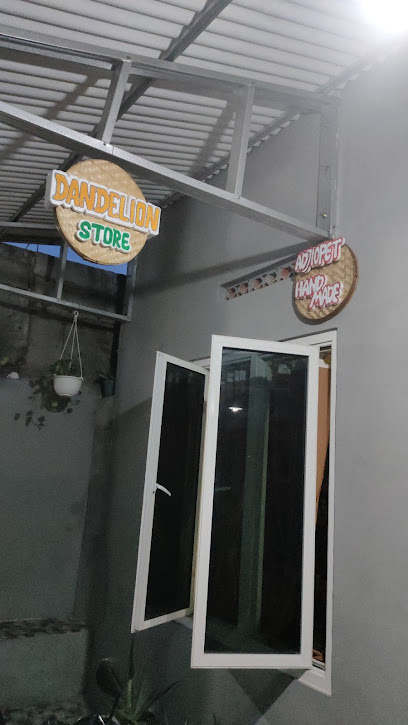
GN
Discover Surabaya's unique store culture, where local crafts and authentic souvenirs await in the heart of East Java's bustling capital.

RnH Store
Explore RnH Store in Surabaya for a unique shopping experience with local crafts, fashion, and souvenirs that reflect East Java's vibrant culture.
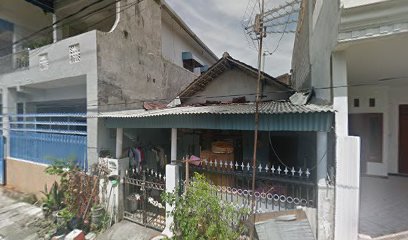
Galery Tika
Explore the artistic treasures of East Java at Galery Tika, a vibrant store showcasing local crafts and artworks in Surabaya.
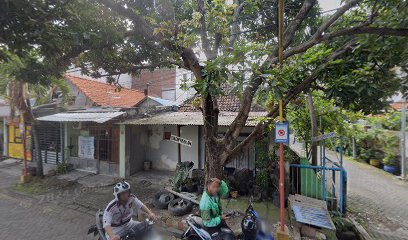
Merchandise & media promosi
Explore a unique collection of local gifts and media at Merchandise & Media Promosi, where every item tells a story of culture and creativity.

Essential bars & hidden hideouts
Our Bar
Experience Surabaya's vibrant nightlife at Our Bar, where delicious grilled dishes meet live music for an unforgettable evening.
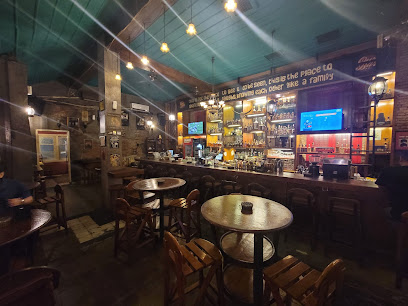
Old Wood Bistro
Experience the charm of Old Wood Bistro, a vibrant restaurant and beer garden in Surabaya offering delicious food, refreshing drinks, and live music entertainment.
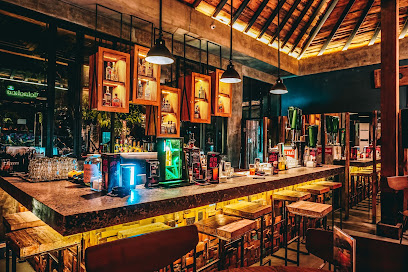
NEON by Brassery
Discover the vibrant nightlife at NEON by Brassery, a premier bar and nightclub in Surabaya offering innovative cocktails and an electric atmosphere.
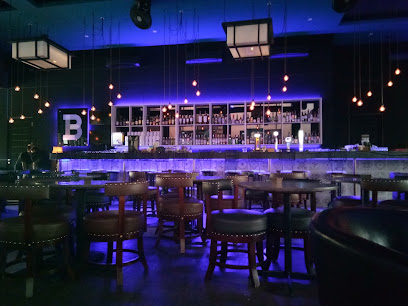
COLORS PUB & RESTAURANT
Experience the lively ambiance of Colors Pub & Restaurant in Surabaya, where delicious food meets captivating live music for an unforgettable night out.
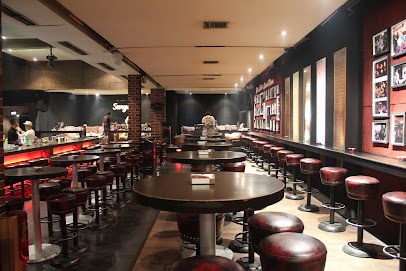
BeerGarden by BURO
Experience the vibrant nightlife of Surabaya at BeerGarden by BURO, a lively beer garden with live music and a diverse beer selection.
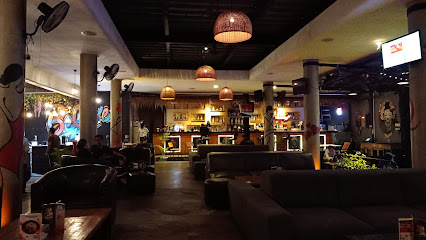
Skycave Bar & Lounge
Experience the lively ambiance and vibrant music at Skycave Bar & Lounge, a premier destination for travelers in Surabaya.
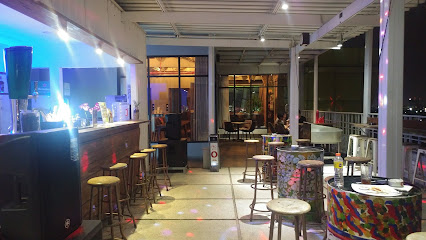
The Gardener
Discover The Gardener in Surabaya, where vibrant dining meets cozy ambiance in a delightful blend of local and international cuisine.

VALOR Private Space & Bar
Experience the vibrant nightlife of Surabaya at VALOR Private Space & Bar, where culinary delights meet a lively atmosphere.
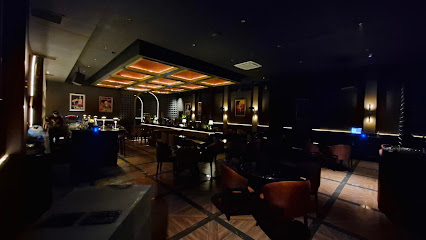
Fashion On The Bar
Experience the vibrant nightlife at Fashion On The Bar in Surabaya, where stylish ambiance meets lively entertainment for an unforgettable evening.
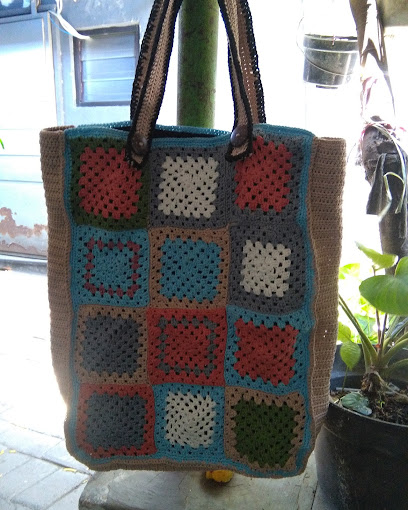
holaa funk
Discover the vibrant nightlife at Holaa Funk, a lively bar in Surabaya offering unique drinks and an eclectic atmosphere.
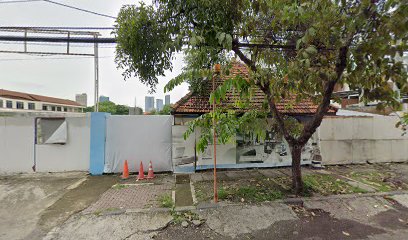
Local Phrases
-
- HelloHalo
[ha-lo] - GoodbyeSelamat tinggal
[se-la-mat ting-gal] - YesYa
[ya] - NoTidak
[ti-dak] - Please/You're welcomeSilakan
[si-la-kan] - Thank youTerima kasih
[te-ri-ma ka-sih] - Excuse me/SorryMaaf
[ma-af] - How are you?Apa kabar?
[a-pa ka-bar] - Fine. And you?Baik. Bagaimana denganmu?
[ba-ik. ba-gai-ma-na den-gan-mu] - Do you speak English?Apakah anda bisa berbahasa Inggris?
[a-pa-kah an-da bi-sa ber-ba-ha-sa Ing-gris] - I don't understandSaya tidak mengerti
[sa-ya ti-dak men-ger-ti]
- HelloHalo
-
- I'd like to see the menu, pleaseSaya ingin melihat menu, tolong
[sa-ya in-gin me-li-hat me-nu, to-long] - I don't eat meatSaya tidak makan daging
[sa-ya ti-dak ma-kan da-ging] - Cheers!Selamat minum!
[se-la-mat mi-num] - I would like to pay, pleaseSaya ingin membayar, tolong
[sa-ya in-gin mem-ba-yar, to-long]
- I'd like to see the menu, pleaseSaya ingin melihat menu, tolong
-
- Help!Tolong!
[to-long] - Go away!Pergi!
[per-gi] - Call the Police!Panggil polisi!
[pang-gil po-li-si] - Call a doctor!Panggil dokter!
[pang-gil dok-ter] - I'm lostSaya tersesat
[sa-ya ter-se-sat] - I'm illSaya sakit
[sa-ya sa-kit]
- Help!Tolong!
-
- I'd like to buy...Saya ingin membeli...
[sa-ya in-gin mem-be-li...] - I'm just lookingSaya hanya melihat-lihat
[sa-ya han-ya me-li-hat-li-hat] - How much is it?Berapa harganya?
[be-ra-pa har-ga-nya] - That's too expensiveItu terlalu mahal
[i-tu ter-la-lu ma-hal] - Can you lower the price?Bisakah anda menurunkan harga?
[bi-sa-kah an-da me-nu-run-kan har-ga]
- I'd like to buy...Saya ingin membeli...
-
- What time is it?Jam berapa sekarang?
[jam be-ra-pa se-ka-rang] - It's one o'clockSekarang pukul satu
[se-ka-rang pu-kul sa-tu] - Half past (10)Setengah (sepuluh)
[se-ten-gah (se-pu-luh)] - MorningPagi
[pa-gi] - AfternoonSore
[so-re] - EveningMalam
[ma-lam] - YesterdayKemarin
[ke-ma-rin] - TodayHari ini
[ha-ri i-ni] - TomorrowBesok
[be-sok] - 1Satu
[sa-tu] - 2Dua
[du-a] - 3Tiga
[ti-ga] - 4Empat
[em-pat] - 5Lima
[li-ma] - 6Enam
[e-nam] - 7Tujuh
[tu-juh] - 8Delapan
[de-la-pan] - 9Sembilan
[sem-bi-lan] - 10Sepuluh
[se-pu-luh]
- What time is it?Jam berapa sekarang?
-
- Where's a/the...?Dimana ada/ada...
[di-ma-na a-da/a-da] - What's the address?Berapa alamatnya?
[be-ra-pa a-la-mat-nya] - Can you show me (on the map)?Bisakah anda menunjukkan kepada saya (di peta)?
[bi-sa-kah an-da me-nun-juk-kan ke-pa-da sa-ya (di pe-ta)] - When's the next (bus)?Kapan yang berikutnya (bis)?
[ka-pan yang be-ri-ku-tnya (bis)] - A ticket (to ....)Tiket (ke ....)
[ti-ket (ke)]
- Where's a/the...?Dimana ada/ada...
History of Gubeng
-
Gubeng, one of the oldest neighborhoods in Surabaya, was significantly influenced by Dutch colonial rule in the 19th century. The area became a focal point for trade and commerce, with the establishment of various European-style buildings that reflect the architectural styles of the time. This period laid the groundwork for Gubeng's development as a bustling urban center.
-
Opened in 1905, Gubeng Station marked the advent of railway transportation in Surabaya. This station became crucial for connecting Surabaya to other regions in Indonesia, facilitating trade and travel. The station's architectural design is a blend of Dutch colonial and local influences, making it a landmark in the neighborhood.
-
During World War II, Gubeng, like much of Indonesia, was occupied by Japanese forces from 1942 to 1945. This period was marked by significant hardship for the local population, with forced labor and resource exploitation. The impact of this occupation left a lasting imprint on the community and its historical narrative.
-
Following Indonesia's independence in 1945, Gubeng experienced rapid urbanization and growth. The neighborhood transformed with new residential and commercial developments, reflecting the changing socio-economic landscape of Surabaya. This era saw the establishment of various local businesses and markets, contributing to Gubeng's vibrant culture.
-
Gubeng is home to a rich tapestry of cultures, influenced by the myriad of ethnic groups in Surabaya, including Javanese, Chinese, and Arab communities. The neighborhood showcases this diversity through its culinary offerings, festivals, and religious practices, making it a microcosm of Surabaya's broader cultural heritage.
Gubeng Essentials
-
Gubeng is easily accessible from various parts of Surabaya. The main railway station, Stasiun Gubeng, is located in this neighbourhood and connects it to other cities in Indonesia. If you are coming from Surabaya's Juanda International Airport, you can take a taxi or a ride-hailing service, which takes about 30 minutes depending on traffic. For downtown areas, public minibuses (angkot) and local buses also serve Gubeng, making it convenient to reach from other neighbourhoods.
-
Gubeng is well-connected by public transportation, including buses and angkots, which run frequently. The neighbourhood is also bicycle-friendly, with several rental shops available. Walking is another great way to explore the area, as many attractions are within a short distance. For longer journeys, consider using ride-hailing apps such as Gojek or Grab, which are widely used in Surabaya.
-
Gubeng is generally a safe neighbourhood for tourists. However, petty crimes such as pickpocketing can occur in crowded places. It is advisable to avoid the darker alleys at night and to stay vigilant around bus and train stations. Areas near Stasiun Gubeng can attract more attention, so keep your belongings secure and be aware of your surroundings.
-
In case of an emergency, dial 112 for police assistance and 119 for medical emergencies. There are several hospitals and clinics in Gubeng, including RSUD Dr. Soetomo, which is one of the largest hospitals in Surabaya. It's also recommended to have travel insurance that covers health emergencies. For minor health issues, local pharmacies are readily available throughout the neighbourhood.
-
Fashion: Do dress modestly, particularly when visiting religious sites; avoid wearing revealing clothing. Religion: Do respect local customs; when entering mosques, women should cover their heads. Public Transport: Do give up your seat to the elderly and pregnant women; don't eat or drink on public transport. Greetings: Do greet with a smile and a nod; don't engage in overly physical gestures unless familiar with the person. Eating & Drinking: Do try local street food and accept invitations graciously; don't waste food as it is considered disrespectful.
-
To experience Gubeng like a local, visit the traditional markets such as Pasar Gubeng, where you can sample local snacks and buy fresh produce. Engage with street vendors and try dishes like rawon and soto, which are regional specialties. Use public transport to travel like a local, and don't hesitate to ask for directions or recommendations from residents, who are generally friendly and helpful.
Trending Landmarks in Gubeng
Nearby Cities to Gubeng
-
Things To Do in Semarang
-
Things To Do in Yogyakarta
-
Things To Do in Bali
-
Things To Do in Bandung
-
Things To Do in Jakarta
-
Things To Do in Makassar
-
Things To Do in Balikpapan
-
Things To Do in Settlement
-
Things To Do in Poon Saan
-
Things To Do in Flying Fish Cove
-
Things To Do in Drumsite
-
Things To Do in Greta Beach
-
Things To Do in Kuching
-
Things To Do in Miri
-
Things To Do in Kuala Belait








